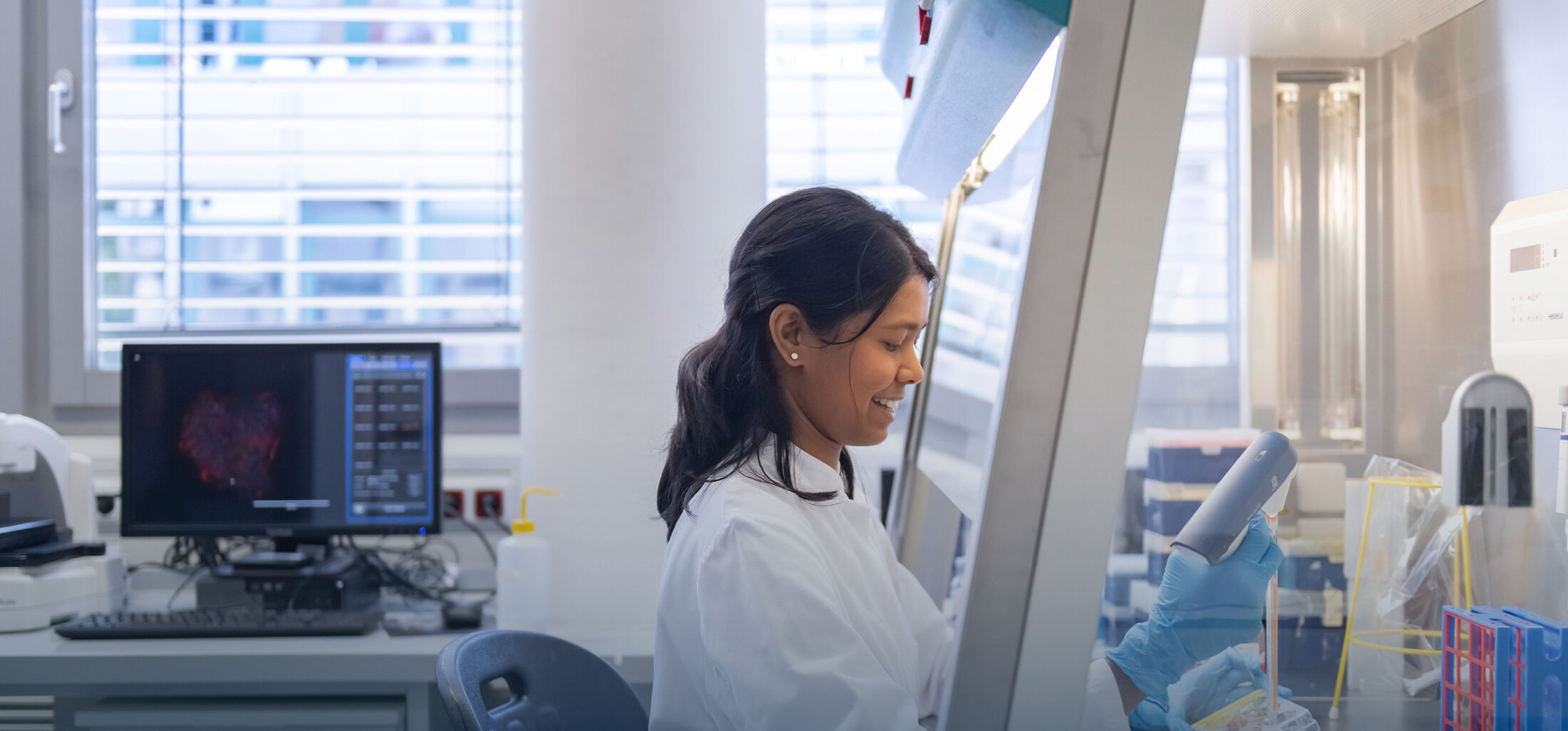Research focus
Our research focuses on molecular mechanisms regulating human stem cells. We work with hematopoietic, mesenchymal and induced pluripotent stem cells. A major focus is on epigenetic changes that occur during cell differentiation, aging, and tumor disease. We are particularly interested in the following aspects:
Interaction of stem cells with biomaterials and structured surfaces
It is fascinating that even individual cells respond to mechanical stimuli. In cooperation with different institutes for material research we investigate how biomaterials, surface structures and elasticity influence the growth and differentiation of stem cells. We aim to understand how cell-material and cell-cell interactions affect self-assembly, pluripotency and specification of cells in culture.
Epigenetic aging
Both, human aging and replicative senescence during cell culture in vitro, are associated with functional and molecular changes. Studies on the methylation of specific cytosines in the DNA can be used to reliably determine cellular age. We aim to better understand the molecular mechanisms and functional significance of this "epigenetic clock". It can also be used to discriminate between chronological age and biological age. These analyses are offered to other scientists by the spin-off company Cygenia (www.cygenia.com).
Biomarkers for blood development
Cellular differentiation is controlled by epigenetic changes. Therefore, epigenetic patterns are perfectly suited for cell characterization. We have developed various DNA methylation biomarkers to define cell populations. These markers can be used for quality control of induced pluripotent stem cells. We are also working on epigenetic blood counts to allow measurement of white blood cell (leukocytes) composition based on DNA methylation. This method is also applicable on frozen blood samples or dried capillary blood from the fingertip. This enables leukocyte testing without drawing venous blood by a physician.
Epigenetic alterations in leukemias and other tumor diseases
The cells of origin of tumors often derive from stem cells. We are investigating how this process is related to specific epigenetic modifications, especially in different forms of leukemia. We are particularly interested in how epigenetic changes interact on different chromosomes and at different sites in the genome. We are also investigating the epigenetic characteristics of non-malignant cancer-associated fibroblasts, which play an important role in tumor development.
Mechanisms for the directional alteration of DNA methylation patterns
It is largely unknown in what way the complex epigenetic patterns are controlled during differentiation. Using CRISPR-Cas9, we are modifying enzymes involved in this regulation. We are also using this technology to directly affect the network of epigenetic modifications. Through these studies, we hope to gain better insights into epigenetic regulatory mechanisms and thus enable functional targets for cell therapeutics and therapies.


